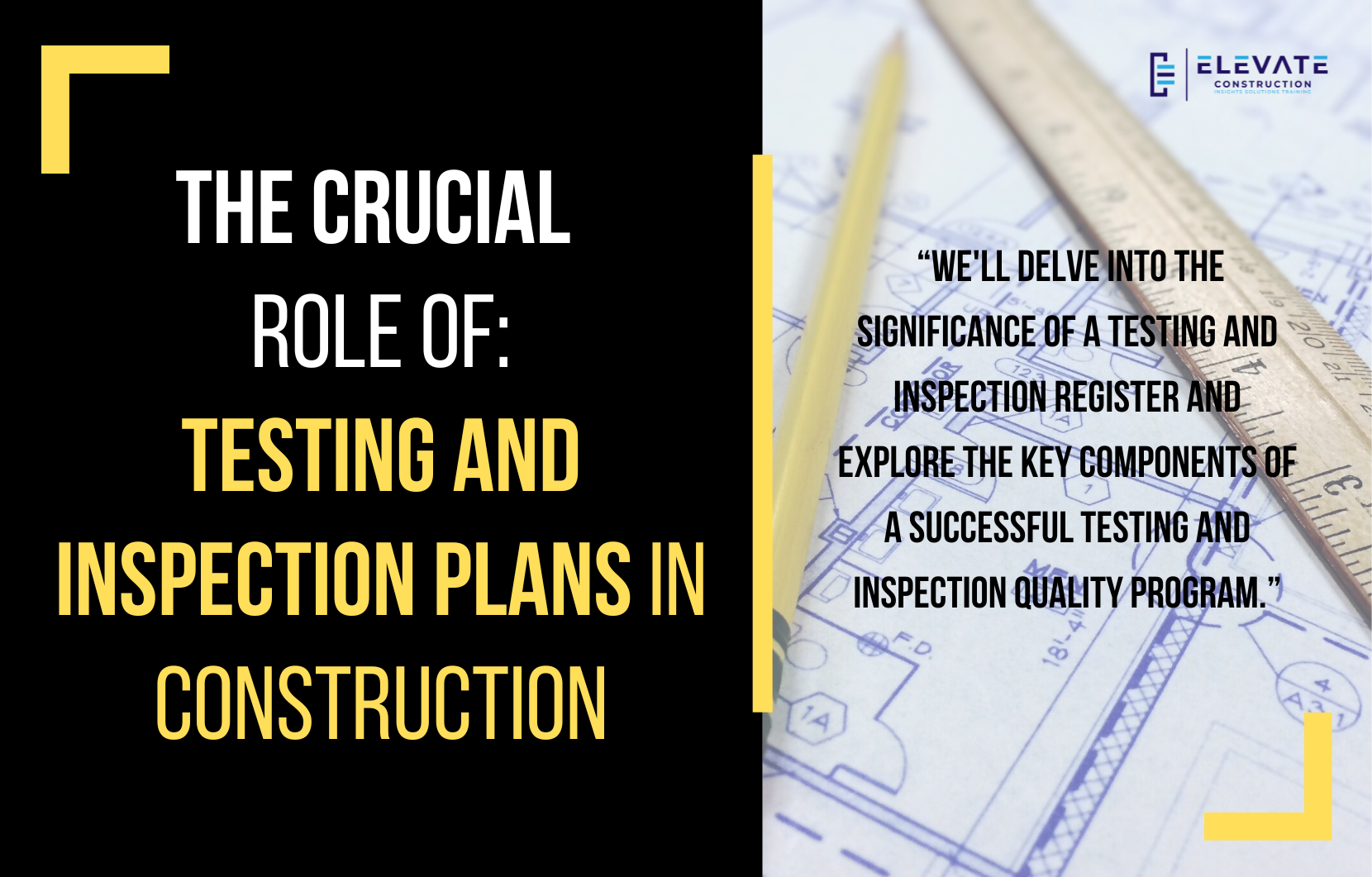Introduction:
In the dynamic world of construction, the implementation of a robust testing and inspection plan is often the unsung hero that ensures projects meet quality standards and avoid costly rework. In this blog post, we’ll delve into the significance of a testing and inspection register and explore the key components of a successful testing and inspection quality program.
How We Created A Testing & Inspection Register:
The journey begins with a personal experience shared by the author, emphasizing the critical role of a comprehensive testing and inspection register. Drawing inspiration from a successful collaboration with a superintendent named Brent Elliot, the author narrates their involvement in a massive research laboratory project in Tucson, Arizona. Brent took charge of coordinating all testing and inspections, going above and beyond by creating a detailed testing and inspection register.
Benefits Of Using A Testing & Inspection Register:
The blog post highlights the potential consequences of neglecting testing and inspection requirements and the horror of discovering compliance issues after completing a construction phase. To mitigate such risks, the author advocates for a meticulous approach. The testing and inspection register involves a thorough review of specifications, identification of testing requirements, and the creation of a comprehensive log that is regularly reviewed with the project team.
What Is A Testing & Inspection Plan In Construction?
The author proceeds to discuss the key components of a robust testing and inspection plan. Quality assurance, designating quality from the start, and quality control, monitoring execution in the field, are emphasized. Step one involves clearly identifying the scopes of work, and the author praises a six-step process used by Hensel Phelps that separates scopes into distinct folders for effective inspection.
How To Clearly Identify Scopes Of Work:
The importance of clearly identifying scopes of work is underlined, as it forms the foundation for successful quality control. Scopes are separated, and pre-construction meetings are conducted, ensuring a detailed checklist is created for each scope to guide installation.
Importance Of Having Checklists For Standards & Specifications:
Checklists derived from pre-construction meetings, plans, and specifications play a pivotal role in ensuring work is carried out according to expectations. The author recommends including testing and inspection requirements directly on the quality checklist.
Benefits Of Creating A Testing & Inspection Schedule:
The creation of a testing and inspection schedule is deemed essential, especially for major items. This schedule allows for efficient planning, preparation, and coordination of inspections, preventing unnecessary delays and ensuring all necessary tests are conducted.
Importance Of Having Proper Documentation For Testing & Inspections:
Proper documentation is stressed, citing the author’s early oversight of not taking follow-up requirements seriously. Deficiencies are tracked in a central location for immediate action, maintaining trust with inspectors and ensuring corrective actions are promptly addressed.
Importance Of Continuously Improving Your Quality Of Work:
The blog post concludes with an emphasis on continuous improvement efforts. A culture of quality at the source is encouraged, empowering workers to identify and rectify defects promptly, fostering trust with inspectors and positively impacting various project metrics.
Reach Out To Us To Learn More:
The author encourages readers to explore more on this subject by linking to a relevant blog post and invites sharing of testing and inspection registers for mutual learning. In the end, the blog post reinforces the idea that quality is a mindset and a cultural approach that should be ingrained in every construction project.
If you want to learn more we have:
-Takt Virtual Training: (Click here)
-Check out our Youtube channel for more info: (Click here)
-Listen to the Elevate Construction podcast: (Click here)
-Check out our training programs and certifications: (Click here)
-The Takt Book: (Click here)
Discover Jason’s Expertise:
Meet Jason Schroeder, the driving force behind Elevate Construction IST. As the company’s owner and principal consultant, he’s dedicated to taking construction to new heights. With a wealth of industry experience, he’s crafted the Field Engineer Boot Camp and Superintendent Boot Camp – intensive training programs engineered to cultivate top-tier leaders capable of steering their teams towards success. Jason’s vision? To expand his training initiatives across the nation, empowering construction firms to soar to unprecedented levels of excellence.
On we go!


